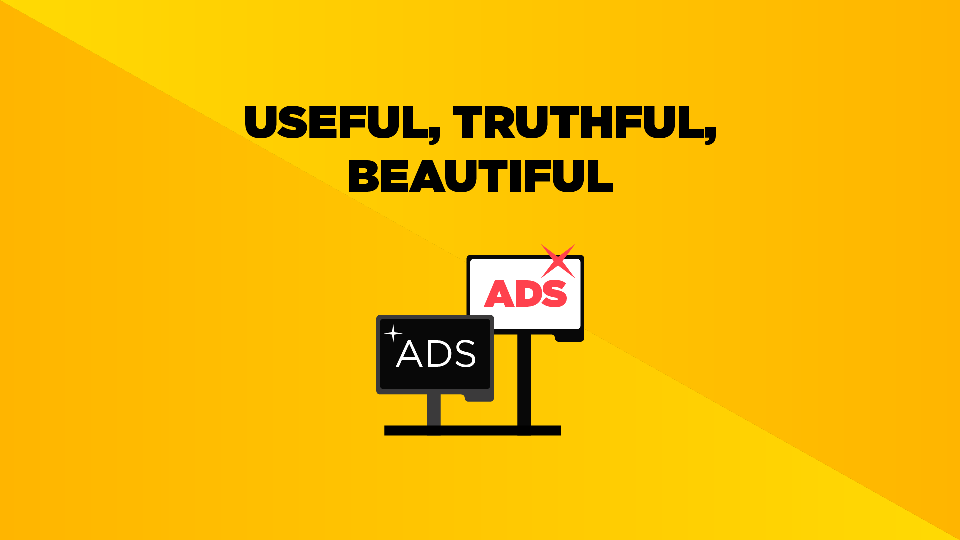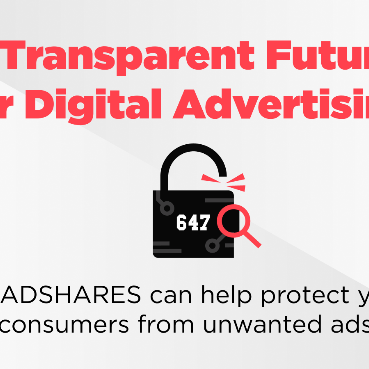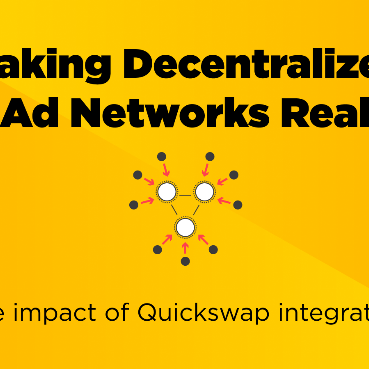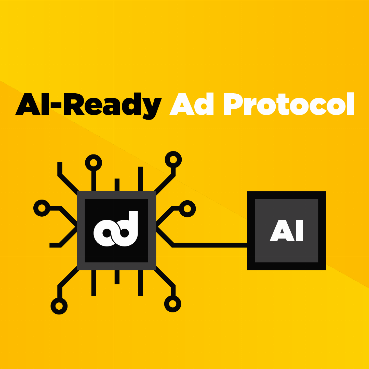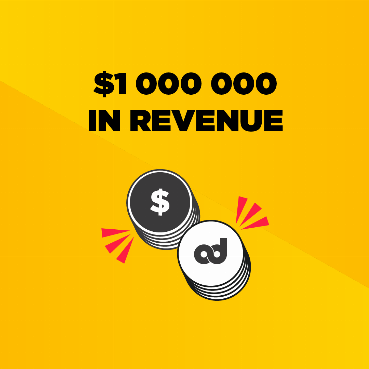Will blockchain improve the online advertising experience or are we in for a real Minority Report?
Here's the problem with personalized ads: we need them to limit our choices - yet we hate our choices being limited, we need them to save us time spent searching - yet we hate feeling like we’re being watched or snooped.
On how we can save digital advertising by being truthful, useful and beautiful.
Death To Personalized Ads!
Personalized advertisements typically use data such as search history and online behavior, rather than personal information, to create targeted ads.
However, this data can still reveal a lot about a person’s interests, preferences, and habits, and can be used to infer sensitive information about them.
In general, personalized advertisements can be beneficial because they can show users ads that are relevant and useful to them. However, there are several potential problems that can arise from the use of personalized advertisements.
- Concerns about the invasion of privacy. Even if an advertiser is not collecting personal information like names or addresses – the data they do collect can still reveal a lot about a person’s interests and habits. This can be intrusive, and users may not want this information to be shared or used for advertising purposes.
- Concerns about discrimination. If the algorithms used to create personalized ads are based on biased data, or if they reinforce existing stereotypes, they can lead to unequal treatment of different groups of people. For example, if an advertiser uses data about a person’s race, gender, or age to create personalized ads, this could result in discriminatory treatment of certain groups.
- A source of misinformation. If the data used to create personalized ads is incorrect or misleading, users may make decisions based on faulty information. This can be harmful if, for example, a user sees an ad for a medical treatment that is not actually effective, and decides to pursue that treatment as a result.
- Manipulating users into making decisions that are not in their best interest. Advertisers may use personalized ads to persuade users to buy products or services that they don’t actually need, or to convince them to make decisions that are not in their own best interests.
Personalized advertisements can raise a number of concerns related to privacy, discrimination, misinformation, and manipulation.
Here’s what I think: It’s not the personalization that is the problem – but:
- the way the data is being collected – i.e. in an invasive yet opaque manner
- by whom – i.e. by the companies whose services we’re complled or simply coerced to use
- with what effect on the User Experience (cookies, GDPR consents and all that screen stealing and net-stalling crap)
- the way they look – screaming promotions at you from every possible placement
But here, it’s worth noting that:
It’s the advertisers responsibility to only use the least necessary data.
It’s the advertisers who are responsible for price manipulations and stereotyping.
It’s the advertisers’ choice to not try and sell to someone who shouldn’t be buying.
Long Live Personalized Ads!
- It can show users ads that are more relevant and useful to them. By using data such as search history and online behavior, advertisers can create ads that are tailored to a person’s interests and needs. This can make the ads more engaging and interesting to the user, and can also make them more likely to take action, such as clicking on the ad or making a purchase.
- It can be more effective for advertisers. Because personalized ads are tailored to a person’s interests and needs, they are more likely to be seen by users who are interested in the products or services being advertised. This can lead to higher conversion rates and a better return on investment for the advertiser.
- It can help improve the overall online advertising experience for users. By showing users ads that are relevant and useful to them, personalized advertising can make the ads less intrusive and more tolerable for users. This can help to create a more positive relationship between users and advertisers, and can also help to maintain the viability of online advertising as a source of funding for content and services on the internet.
Personalized advertising has the potential to offer a number of benefits, including more relevant and engaging ads for users, higher conversion rates for advertisers, and a better overall advertising experience for everyone.
But as you were reading all of the above – don’t you have this uncanny creeping feeling that advertisers and consumers do have opposing interests when it comes to advertising?
And, worse even – that an economy where Advertisers do not see the Consumers’ good as the ultimate goal – is essentially broken and sick?

Who would say this ad is an invasion of privacy? Source: Adweek
Business vs. Humans as usual?
Advertisers want to show users ads that are compelling and persuasive, in order to convince them to buy products or services.
Consumers, on the other hand, may not be interested in the ads they see, and may want to avoid or ignore them.
The problem starts when the advertisers want their consumers to buy products and services they don’t really need or cannot afford, too much and too often.
That is – when they stop treating their consumers as Patrons, and their ultimate stakeholders – but as fools and milking cows.
Users – are they really responsible?
Users also have a responsibility to protect their own privacy and to make informed decisions about the data they share with advertisers. This can include taking steps such as reading the privacy policies of websites and apps, using privacy-enhancing technologies such as virtual private networks (VPNs), and being cautious about the information they share online.
But let’s face it – Privacy seems to be the second most misunderstood idea, right after freedom.
People claim they “want their privacy” – but if one was to judge by looking at the way most people treat their “personal data” – it seems they’d rather be burglarized, abducted or have their identity stolen – than be served a personalized ad.
It is generally possible for users to find out what information is being collected about them for the purposes of personalized advertising
- Review the privacy policies of the websites and apps that they visit, access, update, or delete their data, or opt out of certain types of data collection or sharing.
- Use privacy-enhancing technologies, such as virtual private networks (VPNs) or ad-blocking software, to control the data that is collected about them online.
- Contact the companies that collect data for personalized advertising, and ask them directly about the data they have collected and how it is used.
For anyone who has never bothered to check – there is around a thousand of them!
One would need to restart their online existence and revisit every website ever visited. Or contact any of the companies who collect their data.
So – yeah – this is practically impossible.
And no – do not expect the users to take responsibility for their privacy.
Blockchain – utopia or the ultimate prison
The way companies like ADSHARES see it – blockchain has the potential to mend the existing crippled advertising model.
The death of 3rd party cookies and the dominance of 1st party data is a crucial step to returning knowledge where it belongs: to the Publishers.
Custom ad networks can ensure that only ads relevant to the context, content and user profile are displayed.
Blockchain-based ad protocols (like ADSHARES) have proven ultra-fast and efficient in removing scams, bots and fake traffic by demonetization (i.e. cutting off the budget).
Wallet data – should you be afraid?
When it comes to data privacy and personal information – it really helps to “know what they know”.
With web2 – well – your options are like the above. You can revisit all the websites, call our local GDPR authority, or download the list of all cookie vendors, call them and demand insight into your personal data.
And in web3?
You go to etherscan.io, you type in a wallet address, and what do you see?
This is what the blockchain “knows” about you:
A screenshot from https://etherscan.io
In layman terms, the above contains the following raw data:
- Account balance: stablecoins, altcoins and NFT’s
- transaction history: external (transfers) and internal (swaps)
- Transaction frequency: your rhythm, seasonality, development of activity over time.
This in itself is a trove of information.
- How much balance do you keep ~ how much you can spend
- How many tokens you invested in ~ your level of experience or loyalty
- Their history and value ~ your potential attitudes to trading
- Your maturity as a web3 user.
You see? As much as the above raw data feels almost intimate like someone was peeking into your wallet – the “personalisation” isn’t really too deep.
Publishers – on the other hand – get a potentially powerful tool at their disposal: any website that uses a wallet login – may enhance this data with their first party analytics, like time spent on site, sites visited etc. – thus creating powerful user profiles.
But that’s where it is: at the Publishers’ hands, ready to be fairly monetized and used to improve the quality of content and the experience of their users.
Final thoughts – it’s our shared future
Web3 has been built on the ideals of decentralization, users-in-control and privacy protection.
And as much as we have seen it go the opposite direction – with frauds, failures, scams and rug-pulls – some still believe we can make this model work – by making a shared effort to make advertising more:
- Useful - not coercive or manipulative, providing a true benefit for the consumer
- Truthful - not discriminating or misinformative
- Beautiful - fewer, better, nicer ads mean a better experience for everyone
